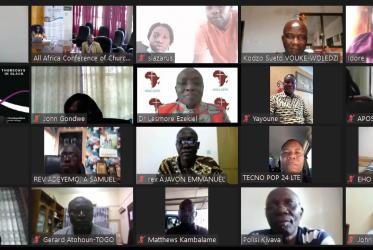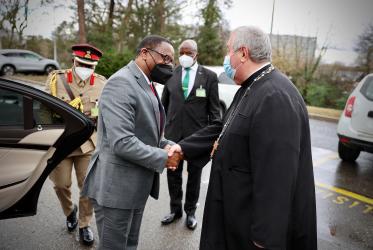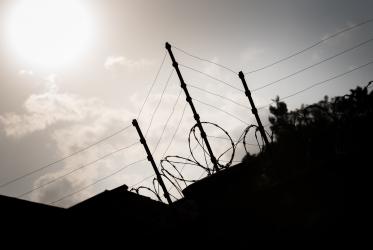Addressing challenges in the way of cooperation between churches and church-based development organizations, also known as “specialized ministries” – an international consultation in Malawi has been promoting mutual collaboration and a common vision of working together for justice and peace.
Organized by the World Council of Churches (WCC) and the ACT Alliance, the consultation focused on relationships between churches and specialized ministries.
Specialized ministries are programmatic or funding partners of the WCC working in the area of development, emergency relief and advocacy.
The consultation held from 4 to 10 September in Mangochi, Malawi gathered participants from WCC member churches, and national, regional and international ecumenical organizations, as well as representatives of specialized ministries.
The event was hosted by the Malawi Council of Churches and the ACT Malawi Forum.
“The consultation in Malawi has offered a safe space for mutual questioning, challenging and learning among the ecumenical actors,” said Rev. Dr Kim Dongsung, the WCC programme executive for diakonia and ecumenical solidarity.
“Learning how to voice our differences, to appreciate they exist and to commit to working together in spite of such differences is a challenge that we must all face as members of the one ecumenical movement,” added Kim.
He said the consultation has helped to develop an “understanding of resources, assets and gifts that can be shared between the churches and specialized ministries in order to strengthen our common calling for service and Christian witness.”
Dr Isabel Apawo Phiri, WCC associate general secretary, said the WCC is proposing to view mutual relationships between churches and specialized ministries within the framework of the “pilgrimage of justice and peace” – a call issued from the WCC 10th Assembly in the Republic of Korea in 2013.
She said this call not only addresses institutional structures but also includes “people who are the Church of Christ in the world today, such as the young and old, women and men, the differently abled, and even people of different faiths”.
Phiri emphasized the importance of a strong relationship between churches and specialized ministries which she said “express the commitment of churches for peace and justice in societies”. She said specialized ministries are well placed to further develop ecumenical solidarity and strengthen cooperation among churches.
John Nduna, general secretary of the ACT Alliance, gave an address at the consultation in which he stressed the need to “foster relationships between the ACT Alliance and councils of churches around the world, even those that are not members of the Alliance”. He said strengthening relationships is significant since “we all strive to see people live in a just and peaceful world”.
With specialized ministries, the WCC implements a variety of programmes including its HIV and AIDS work in Africa, accompaniment programmes in the Middle East and Colombia, gender justice, advocacy on climate change, economic justice and arms trade, mission and evangelism, ecumenical diakonia and the work of the WCC’s Faith and Order commission.





